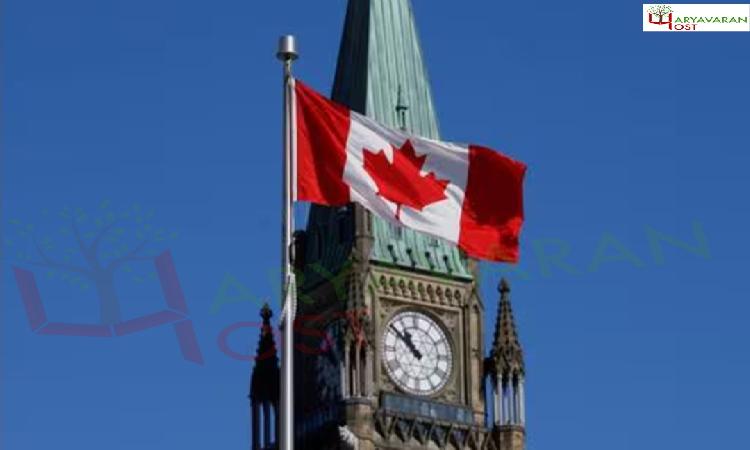

Toronto: India is allegedly involved in "hostile foreign interference and espionage activities" in Canada, according to the intelligence service of that nation. The Canadian Security Intelligence Service (CSIS) published its Public Report 2023 this week, which included this accusation.
According to the research, the Islamic Republic of Iran, the Russian Federation, the People's Republic of China, and India are major actors of foreign espionage and meddling in both Canada and the West. To further their goals and interests, these states and their intelligence agencies carried out a range of hostile foreign influence and espionage activities in 2023.
Director of CSIS David Vigneault's introduction went into detail on the June 18, 2018, murder of pro-Khalistan activist Hardeep Singh Nijjar in Surrey, British Columbia. He made reference to Canadian Prime Minister Justin Trudeau's September 18 remarks in the House of Commons, in which he said there were "credible allegations" of a possible connection between the murder and Indian operatives. The Prime Minister declared that safeguarding Canadian nationals and preserving Canadian sovereignty were essential. In a letter, Vigneault said that the government's top goals were to take all necessary measures to hold those responsible for this murder accountable and for law enforcement and security agencies to guarantee the ongoing protection of all Canadians.
According to the article, Vigneault and Jody Thomas, the National Security Intelligence Adviser, visited India before Trudeau made his remark in order to discuss the issue with their colleagues.Director Vigneault responded to the grave accusations by saying that Canada and its allies want the Government of India to answer for its possible role in the killing of a Canadian citizen on Canadian territory, according to the article.
Additionally, it stated that although "low-sophistication cyber activities against Canada by India-aligned non-state cyber actors were observed" following a decline in the two countries' bilateral relationships, "no indication that the Government of India was responsible for these cyber incidents" was present. It's interesting to note that the country issued a warning about "an increase in observed threat activity" related to support for Khalistan, including "attacks targeting India," in its 2018 public report, which was made public in June 2019.
The organization discovered that "threat-related activities have continued within Canada, primarily targeting India and committed by a small number of extremists based in Canada who support violent means to establish an independent state within India." After peaking in the mid-1980s, this had been "mostly at a low level," according to the statement. But it also pointed out that "observed threat activity, wherein Canada is being used as a base to support this view as well as attacks targeting India, has increased recently."
It claimed that these actions posed a risk to Canada's security as well as to the target nation, India. The threat landscape of today is worldwide. As stated in the report, "Canada must contribute to the international community's efforts to prevent violent attacks from happening in any country. We have an obligation to properly assess threat actions in Canada directed outside our borders.”